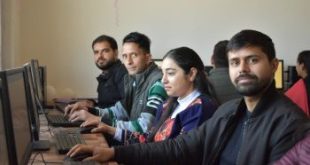Renowned researcher, Dr. Pradeep Mahajan, shares valuable insights on autism, shedding light on this complex condition.
Dr. Pradeep Mahajan, Regenerative Medicine Researcher & Founder of StemRx Hospital and Research Centre
Autism Spectrum Disorder (ASD) remains a topic of great interest and mystery within the field of neurodevelopmental disorders. Dr. Pradeep Mahajan, a highly respected authority in this domain, has been diligently working to unravel the intricacies of autism. Recently, Dr. Mahajan shared his perspectives on this condition, providing valuable insights into the world of autism.
Autism is a multifaceted disorder characterized by difficulties in social interaction, communication, and repetitive behavior patterns. It affects individuals across a broad spectrum, with varying degrees of severity. Dr. Mahajan emphasizes the need for a comprehensive understanding of the diverse manifestations of autism, as well as the underlying genetic and environmental factors.
One area of focus for Dr. Mahajan is the genetic basis of autism. He highlights the importance of genetic research in unraveling the complex genetic landscape associated with this condition. By studying the genetic markers and variants present in individuals with autism, researchers can gain a deeper understanding of the underlying causes and potentially identify targeted therapies.
Dr. Mahajan also highlights the role of environmental factors in autism. While genetics play a significant role, he acknowledges that environmental factors, such as exposure to certain chemicals or toxins during critical periods of neurodevelopment, can also contribute to the risk of developing autism. Understanding the interplay between these genetic and environmental factors is crucial for developing comprehensive strategies for diagnosis and intervention.
Early diagnosis and intervention are cornerstones of improving outcomes for individuals with autism. Dr. Mahajan emphasizes the need for increased awareness and improved screening tools to identify autism at the earliest possible stage. Early intervention can significantly improve cognitive, social, and communication skills, enabling individuals with autism to lead more fulfilling lives.
Regenerative medicine, with its focus on repairing and rejuvenating damaged tissues, holds promise for developing innovative therapies for the neurological aspects of autism. By harnessing the power of regenerative cells and regenerative techniques, researchers aim to restore neural networks and improve neuronal connectivity in individuals with autism. Rigorous clinical trials and comprehensive studies are essential to ensure the safety and effectiveness of these emerging therapies.
As a leading figure in the field, Dr. Mahajan urges collaboration between researchers, clinicians, and By fostering a multidisciplinary approach, a more holistic understanding of the disorder can be achieved. This collaboration can also lead to the development of personalized treatment plans tailored to each individual’s unique needs, ultimately optimizing outcomes for individuals with autism.
 Newspatrolling.com News cum Content Syndication Portal Online
Newspatrolling.com News cum Content Syndication Portal Online






